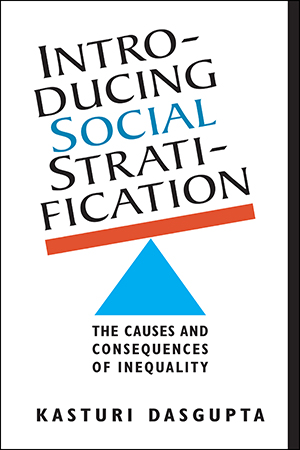
- 2015/450 pages
Introducing Social Stratification:
The Causes and Consequences of Inequality
Paperback: $35.00
ISBN: 978-1-62637-183-5
Ebook: $35.00
ISBN: 978-1-62637-372-3
Does everyone in the US have an equal chance to "make it"? What explains the enduring power of racism and sexism? How does our sociopolitical system generate inequality? These are just a few of the questions explored in this accessible introduction to the complex problem of social stratification.
Kasturi DasGupta clearly explains the social and economic mechanisms that serve to preserve and even deepen social stratification in the US. Enriched with case studies and examples throughout, her text is carefully designed both to engage students and to help them see past cultural myths to grasp the underpinnings and consequences of social inequality.
Kasturi DasGupta clearly explains the social and economic mechanisms that serve to preserve and even deepen social stratification in the US. Enriched with case studies and examples throughout, her text is carefully designed both to engage students and to help them see past cultural myths to grasp the underpinnings and consequences of social inequality.







